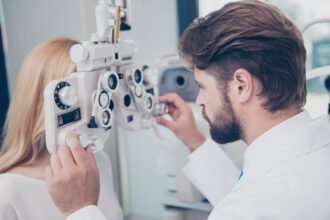Living well can be a challenge, especially in the hustle and bustle of today’s world.
Finding time to exercise, eat right, and get regular medical examinations can seem like a tall order to fill. Still, if you break it all down into smaller, easier to manage pieces, you’ll have a better chance of succeeding at living healthier and better.
There are many benefits that come from living healthier, and it’s much more straightforward than you may realize.
Finding time every day to exercise, eat less processed foods, avoid alcohol and tobacco, as well as get a regular medical work-up will not only add years to your life, but also make you less concerned and worried about your health, improving the quality of your life as a result.
A sneaky side benefit to living healthier is that a lot of mental health issues like anxiety may stem from imbalances in the neurochemicals in the brain. So regular exercise helps balance those hormones and can lead to a happier life as well.
Health Benefits Associated With Exercise
There are various health benefits associated with exercise that ranges from strengthend bones and muscles, improved cardiovascular performance and enhanced moods.
Some of the benefits of exercise are quantifiable such as how much weight you can press, your body weight and mass, while others such as appetite control and enhanced cognitive function are harder to see.
That said, it’s thought that the average adult needs 150 minutes of moderate-intensity exercise a week. While the number 150 may seem large, that’s only 30 minutes a day for 5 days if you break it down.
Even the busiest of parents can find 30 minutes a day for moderate exercise if time is prioritized in such a way as to make exercise part of the daily routine.
Benefits that come with daily exercise vary and include:
- Strengthens the skeletal-muscular system
- More efficient cardiovascular and respiratory function
- Boosted immune system
- Enhanced moods
- Better waste production
- Appetite control
- Weight management
- Improved cognitive function
- Slows the aging process
The idea is to move more, sit less, which can have positive impacts on short and long-term health.
To meet the minimum requirement, you can choose to take brisk walks every day for thirty minutes or increase the intensity of your activity, which allows you to do less overall minutes of exercise per week.
Instead of 150 minutes of moderate exercise, higher-intensity movements, especially with weight resistance, lower the time threshold to 75 minutes per week.
However you slice it, one of the foundations to better health is daily exercise, and learning to incorporate activities that increase your heart rate even moderately will significantly impact your overall quality of health.
Eating Right
Coupled with daily exercise, eating a nutritious diet consisting of vegetables, fruits, whole grains, and limiting sugar and salt intake is crucial for overall health.
Eating healthy is one of the singularly easiest things to do to improve your health and quality of life.
Eating well lowers the risk of cardiovascular disease, a leading cause of heart attack and stroke, and reduces other factors such as lowering cholesterol, blood pressure, and blood sugars.
Choose fruits and vegetables: Too many diets are centered around starches and fats, eschewing fruits, vegetables, and healthy grains.
Plant-based proteins: Choosing plant-based proteins such as legumes and beans and avoiding red meat is one of the simplest (and cost-effective) ways to eat better.
Limit processed foods: Food products that are processed typically have unnecessary fillers and additives included, are loaded up on salt, and offer less nutritional value than unprocessed food.
Drink water: The body is made of over 75% water, so replenishing water helps aid with digestion body temperature regulation, slow the impact of aging, and oftentimes when a person is feeling hungry, the body is actually dehydrated. Drinking water helps maintain a healthy appetite, eliminating the need for snacking and overeating.
Regular Medical Examinations
Eating well and exercising are great maintenance tips for health, but to be sure you’re getting the maximum from your health routine, getting regular medical examinations is crucial.
The benefits of regular health examinations are that they can find significant underlying health issues before they become a concern. For example, most cancers that are found early are more treatable than if discovered late.
Additionally, if there are heart attack or stroke issues, a more complete workup that includes lab diagnosis of blood and other bodily fluids may discover issues before they start.
Blood work may help discover:
- Some types of cancer
- Diabetes
- HIV/AIDS
- Liver and kidney function
- Cholesterol levels
Of course, finding the right lab to diagnose your specific health issues doesn’t need to be complicated. Often your primary care physician will recommend a destination, but you can always search online if you need help to find local Quest Diagnostics labs in your area.
There is no shortcut to living well, but focusing on doing these three areas, exercise, eating right, and getting routine medical examinations, will give you the best opportunity to live healthy, happy, and well.









